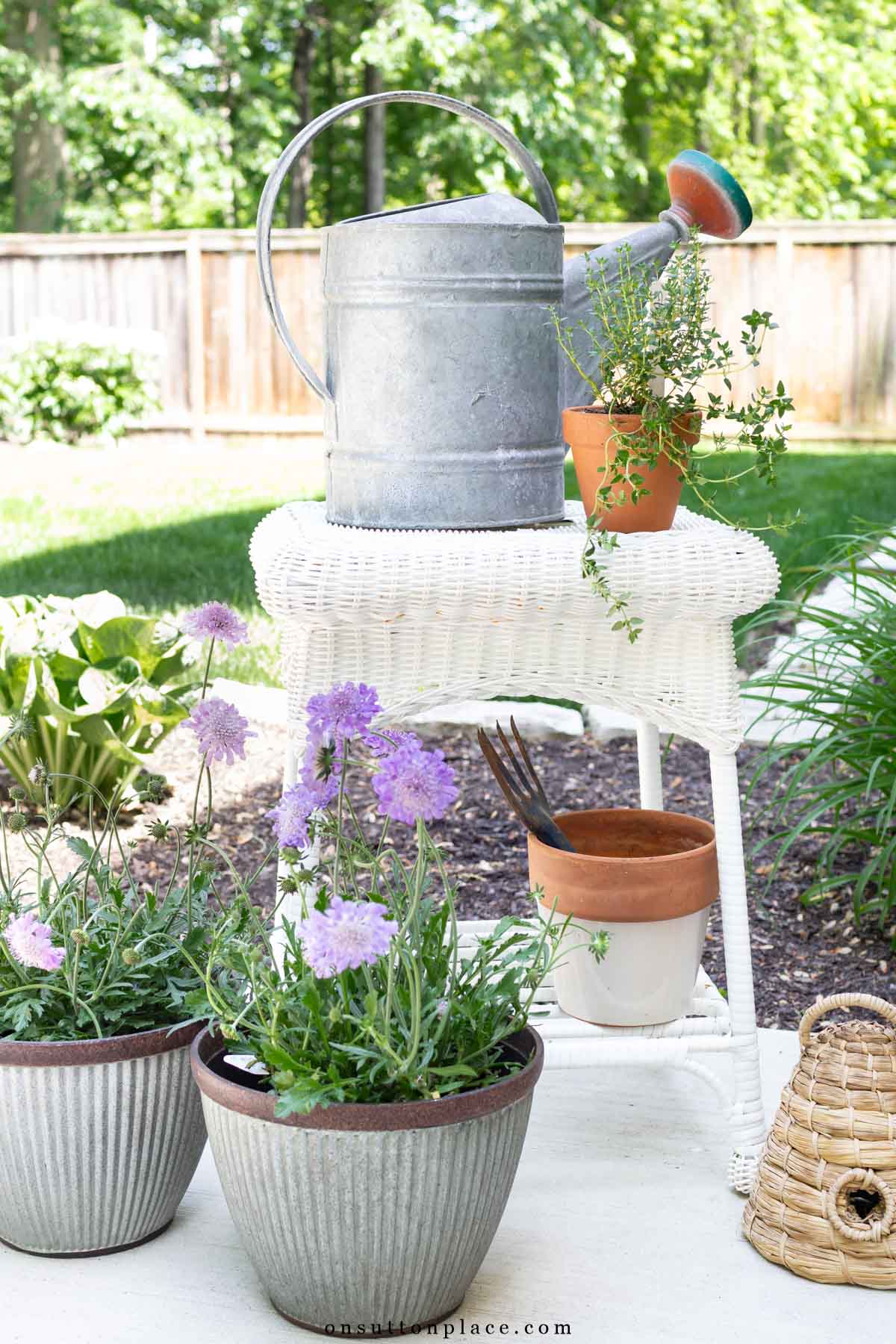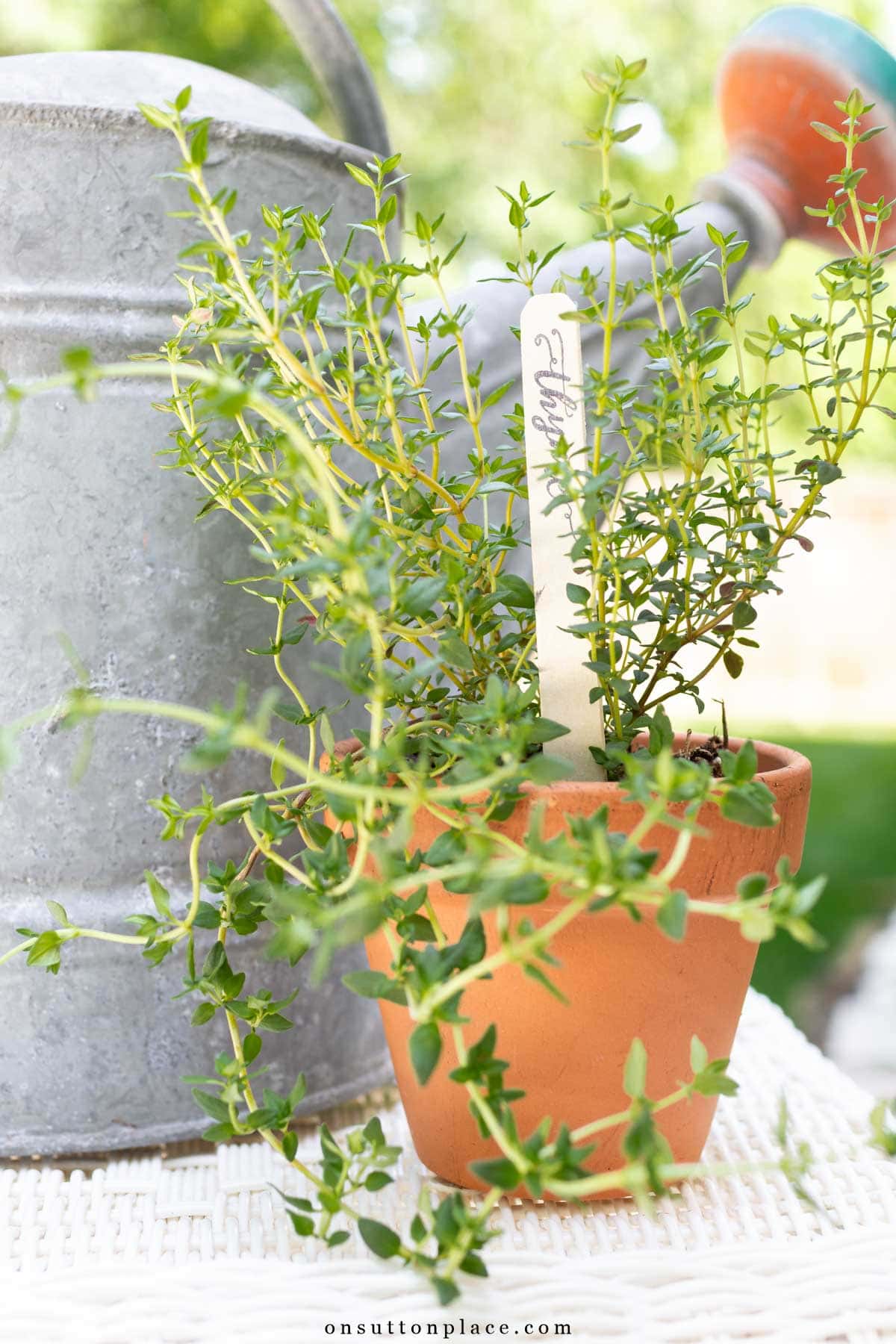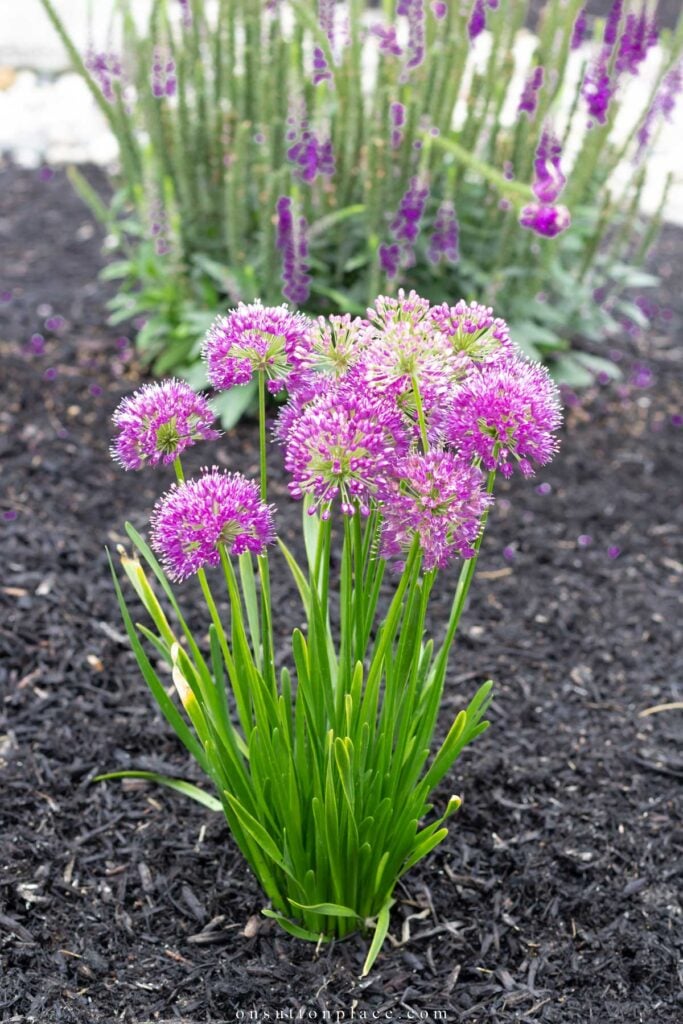This post may contain affiliate links. See my disclosure statement.
Use these gardening tips for beginners to finally start that garden of your dreams. Everyone has to start someplace, and these gardening tips will lead you in the right direction!

Are you ready to start that garden you’ve always wanted? Gardening is a great hobby and a wonderful adventure. For the best results, it’s important to make smart choices to help your garden thrive in its first year. These tips will guide you toward success. Although geared toward beginner gardeners, they also apply to anyone who has been gardening for a while, and even seasoned gardeners.

Don’t go all out your first year.
A common mistake new gardeners make is trying to start with a huge garden in the very first year, without a clear understanding of what they’re doing. Instead, begin with one garden bed and a few plants in pots or containers. This approach gives you plenty to work with and is the perfect way to start. Beginning small allows you to experiment and learn to garden without spending too much money. The last thing you want is to get in over your head when you’re just beginning!

Start with seedlings.
Starting seeds is a craft in itself, and in your first year, it can be overwhelming. The best advice for beginner gardeners is to begin with seedlings, or bedding plants as they are sometimes called. These are small plants that can be purchased at all garden centers. The work involved with seed starting has been done for you, allowing your garden to get a head start without the stress of learning how to start seeds. That can come later!

Consider Containers.
Container gardening is a great option for beginners because it’s easy to manage and doesn’t require much space. It allows you to start small, with just a few pots of flowers or herbs, and grow from there as you gain confidence. Containers can be placed on patios, porches, or even balconies, which makes them perfect for anyone without a large yard. It’s also easier to control the soil quality, drainage, and watering, which sets your plants up for success.

Plan your beds before planting.
Many new gardeners buy plants and begin putting them in the ground without planning their placement. Plants and shrubs have specific needs for space, light, and nutrition, and these factors need to be considered. If you don’t plan your garden in advance, you may end up with overcrowded or incompatible plants. This can lead to plants that fail to thrive, and even a failed garden.

Improve your soil.
All gardens start from the ground up, which means the dirt you use needs to have adequate nutrition for a thriving garden. For a vegetable garden with edible plants, this also affects your family’s health, as the more nutrition the plant gets, the more the produce can offer your family. The best way to achieve this is with compost or enriched garden soil. Both compost and enriched garden soil are available by the bag at garden centers or can be purchased in bulk.

Stock up on mulch.
A layer of mulch is organic material placed on the soil in gardens or any sort of landscape. Mulch is important for keeping your plants moist and cool, and it helps control weeds. Stock up on mulch when it goes on sale at the beginning of the gardening season. Another tip is to begin with a layer of straw, leaves, or grass clippings, and top it with more expensive decorative mulch. This will give you a thick covering for less money.

Make a watering plan for your garden.
Figuring out your watering plan before you start your first garden can save a lot of frustration later. It’s advisable to avoid the old-fashioned watering can and go straight for the garden hose. It’s much more efficient to use a hose with a spray nozzle or a soaker hose placed on your garden soil. Another tip for beginners is to place your garden hoses in convenient places. Invest in a long hose for every outdoor water spigot on your property.

Find a gardening community.
Gardening communities are everywhere. They can be found in your neighborhood or online. Having real people to talk to and ask questions can make learning to garden easier and a lot more fun. You can learn so much about gardening by scrolling through discussions in these groups, allowing you to become a better gardener. If you’re on Facebook, here are two gardening groups that are open to anyone:

Grow what you love.
One of the secrets to successful and simple gardening is choosing plants you love and ones that will make your life better. Whether it’s planting flowers that bring beauty to your life or growing edible plants that feed your body and soul, make sure to carefully select plants that will be useful and productive. My favorite things to grow are perennials and herbs. I don’t plant many annuals or bulbs. It took me just a few years to realize that vegetable gardening was not for me! Once you begin your garden and teach yourself the basics, you’ll quickly find out what you like and don’t like.

Bonus: Keep a garden journal.
This is the best way to record what’s working and what’s not in your garden. A garden journal allows you to document all your plants and track their progress. It also provides a place to note the lessons you learn and look back on them to help plan your garden for the next season. Fill out the form below to get the free printable OSP Garden Journal.
I know it’s a lot to think about and plan! Simply take it one step at a time. Begin the process, take your time, and most importantly, don’t let yourself get discouraged. It’s a learning experience, and I promise it’s worth your time and effort!
















Great advice, Ann, even for us not so new gardeners. I know I complain about having to weed and mulch, but working in my beads is truly my at home happy place.
Good morning Ann, congratulations on the arrival of your 3rd grandchild! They are truly a blessing! Our oldest grandchild is now a freshman in college, which is hard to believe. Seems like they grow up just as fast as our own children did. Enjoy those precious baby years!
On a different subject, wondering if you miss your house on Sutton Place… your new home is lovely, and I’m sure it’s a fresh start and good feeling to down size into a newer house. When I see pictures from your old house and yard, it reminds me what a lovely home that was as well. Just wondering if you have any regrets or what your thoughts are about leaving your older home and neighborhood.
Thank you Ann for all your tips and gardening advice. I find that you just need to get out there and get your hands dirty!! Gardening is a learning process but oh so very rewarding.
I printed your Gardener’s Journal last year and absolutely love it! I have added notes, clippings, photos and placed all the plant tags in baggies, labeled by year. Now, I can go back and see which plants I purchased, which I plants did well in the garden and those I would not buy again. My husband & I started composting and our first batch is almost ready. Happy Gardening!
Where did you get those pots that look galvanized ? Love them ! Great information for novice and all gardeners!
One of the best things you can do as a gardener is to be organic. Make or buy compost and add to your bed each year. The earthworms will come and leave behind their nutritious castings. Use organic fertilizer not Miracle Grow….Espoma makes great products. Beneficial insects will come to control aphids. If you use any pesticides…use only insecticidal soap, not poisons so that you can host caterpillar eggs that will later become butterflies or moths. Live with the earth and not against it, is my motto.
Thanks for encouraging gardening Ann